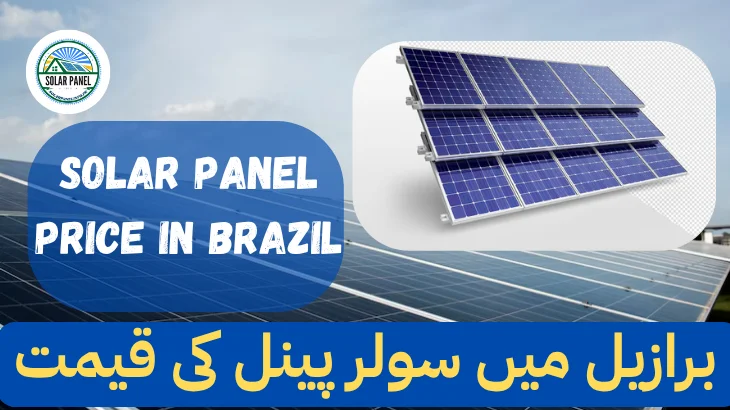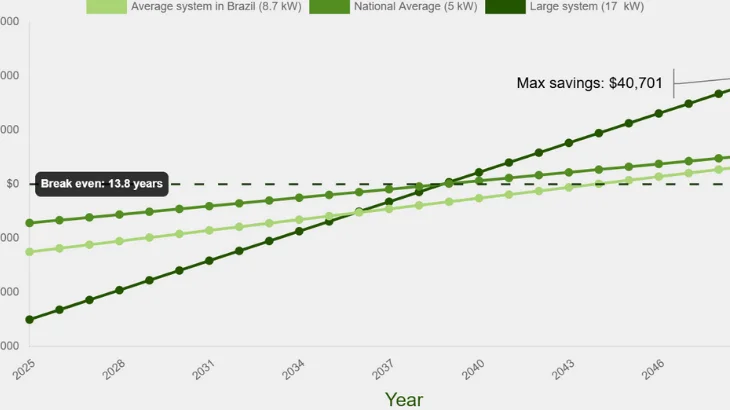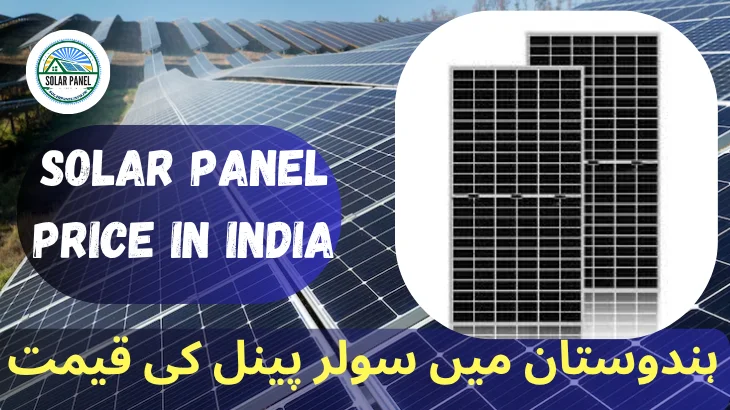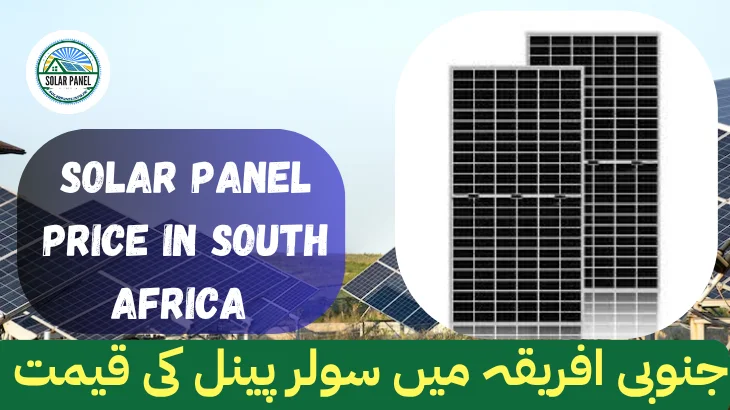Solar Panel Price in Brazil
In Brazil, the average cost of solar panels is about $4 per watt, which is higher than the national average of $2.66 per watt. A typical home requires an 8.7-kW solar system, leading to an average installation cost of approximately $25,038 after the federal solar tax credit. The actual cost may vary based on factors like panel type and installer. Homeowners can save around $20,000 on power bills over 20 years by investing in solar energy. Here we will discuss the Solar Panel Price in Brazil.
Read more: Solar Price in the USA

No Brasil, o custo médio dos painéis solares é de cerca de US$ 4 por watt, superior à média nacional de US$ 2,66 por watt. Uma casa típica requer um sistema solar de 8,7 kW, resultando em um custo médio de instalação de aproximadamente US$ 25.038 após o crédito tributário federal para energia solar. O custo real pode variar dependendo de fatores como o tipo de painel e o instalador. Proprietários de imóveis podem economizar cerca de US$ 20.000 em contas de energia ao longo de 20 anos investindo em energia solar.
Solar Panel Price in Brazil
| System / Panel Type | Size / Type | Price (BRL) | Price per Watt (BRL/Wp) |
| Small Residential System | 2–4 kWp | R$4,600 – R$12,520 | R$2.30 – R$3.13 |
| Standard Residential System | 5 kWp | ~R$11,000 | R$2.20 |
| Large Residential (Ground) | 75 kWp | ~R$234,750 | R$3.13 |
| Commercial System | 50 kWp | ~R$112,500 | R$2.25 |
| Utility-Scale System (Total) | ~1 MW (1,000 kW) | R$3.84 million | R$3.84* (converted from USD) |
| Utility-Scale Modules & Inverters | Per kW | R$1,210 | R$1.21* |
| Polycrystalline Panel | 560W | R$916 | R$1.63 |
| Monocrystalline Panel | 560W | R$1,443 | R$2.58 |
| Southeast Region Avg. (4 kWp) | 4 kWp | ~R$11,200 | R$2.80 |
| Midwest Region Avg. (4 kWp) | 4 kWp | ~R$10,320 | R$2.58 |
| North Region Avg. (4 kWp) | 4 kWp | ~R$11,160 | R$2.79 |
Factors that Affect Solar Panel Costs in Brazil
The cost of installing a solar system in Brazil can differ significantly, with variations exceeding $10,000 between different homes. Several factors influence the final price, the most significant being the size of the system. Additionally, the choice of equipment, financing options, and the specific solar company selected all play crucial roles in determining the overall cost.

Types of solar panels in Brazil
Solar panels in Brazil offer a variety of options based on their solar cell composition and features:
Monocrystalline Solar Panels Painéis solares monocristalinos
Made from pure silicon, these dark black panels have high efficiency and are preferred for residential and commercial rooftops.
Polycrystalline Solar Panels Painéis solares policristalinos
Constructed with silicon crystals, these blue panels have lower efficiency than monocrystalline but are more cost-effective, making them popular for large solar power installations.
Thin-Film Solar Panels Painéis solares de película fina
Created by depositing thin layers of photovoltaic material on a backing, they are less energy-intensive to produce compared to crystalline silicon cells.
Bifacial Solar Panels Painéis solares bifaciais
These panels have solar cells on both sides, capturing sunlight from either direction, particularly effective in areas with high ground reflectivity.
Top Solar Installers in Brazil
Installing solar panels yourself can save you some money, but it can also be a bit of a hassle. If you decide to go with a professional installer, it can make the switch to solar power a lot smoother! Since solar panels are out in the weather all the time, having a warranty and repair options from your installer can really help protect your investment and save you money on any future issues. Teaming up with a trusted solar installer can make your journey to going solar much easier and more enjoyable!
Read more: Solar panel installation Plan

Solar Panel Cost Data by System Size
| System size | Cost per system watt | Solar system cost | 25-Year savings | Payback period |
| 6 kW | $4.26 | $17,909 | $13,307 | 14.3 years |
| 8 kW | $4.18 | $23,419 | $18,203 | 14.1 years |
| 10 kW | $4.10 | $28,700 | $23,327 | 13.8 years |
| 12 kW | $4.02 | $33,751 | $28,681 | 13.5 years |
| 14 kW | $3.94 | $38,573 | $34,265 | 13.2 years |
| 16 kW | $3.85 | $43,165 | $40,079 | 13.0 years |
| 18 kW | $3.77 | $47,527 | $46,122 | 12.7 years |
| 20 kW | $3.69 | $51,660 | $52,394 | 12.4 years |
How to Save on Solar Panels
- The choice of a solar installation company impacts warranties, brands, and total costs.
- Review the installer’s contract to understand services, warranties, and energy production expectations.
- Understand the installation process, including necessary permits and project timelines.
- Different companies offer access to various solar panel brands, influencing your choice.
- A company’s reputation, especially if it has been in business for a long time, is important for ensuring quality service and aftercare.
Industrial Applications of Solar Panels in Brazil
- Self-Generation: Reduces energy costs for manufacturing units and is often paired with net metering.
- Industrial Parks & Complexes: Shared solar plants serve multiple tenants, common in regions like São Paulo and Goiás.
- Agro-Industry: Powers essential farm equipment in sectors such as poultry and sugarcane production.
- Cold Storage: Essential for food warehouses and meatpacking plants, ensuring reliable cooling systems.
- Oil, Gas, and Mining: Supports remote monitoring and operations, especially in Amazon mining areas.
- Transportation & Logistics: Fuels distribution centers and EV charging stations, enhancing sustainability.
- Chemical & Pharmaceutical: Meets high energy demands for labs while reducing carbon footprint.
- Healthcare: Provides stable power for medical supply factories and healthcare equipment.
- Large Commercial Rooftops: Solar integration is found in shopping centers and airports.
- Hybrid & Microgrid Systems: Combining solar with generators or batteries in remote areas, prevalent in Amazon and Northeast Brazil.
Product specifications and features of the solar panel in Brazil
Product Specifications of Solar Panels in Brazil
- Power Output Range: 330W to 670W per panel, common sizes include 450W, 540W, and 560W.
- Dimensions: Standard panel size is approximately 1.1m x 2.2m.
- Weight: Around 22 to 28 kg per panel.
- Voltage & Current: Max system voltage of 1000V or 1500V DC, Open Circuit Voltage ~45–50V, Short Circuit Current ~10–14A.
- Connector Type: MC4-compatible connectors.
- Frame Material: Anodized aluminum (corrosion-resistant).
- Glass Type: Tempered anti-reflective glass, 3.2mm thick.
- Backsheet: Typically white or black polymer film.
Key Features of Solar Panels in Brazil
-
- INMETRO Certification: Required for legal sale in Brazil, ensuring safety and performance.
- Weather Resistance: Built to withstand high humidity, heat, UV exposure, and tested for salt mist, suitable for coastal areas.
- PID Resistance: Panels are typically resistant to Potential-Induced Degradation, enhancing lifespan.
- Bifacial Technology (Optional): Some panels can capture sunlight from both sides for increased energy output.
- Durability
-
-
- Wind resistance: Up to 2400 Pa.
- Snow load resistance: Up to 5400 Pa (rarely necessary in Brazil).
-
- Warranty
-
- 10–15 years for the product.
- 25–30 years for linear power output (typically 80–85% after 25 years).
Quality and safety considerations of solar panels in Brazil
Quality Considerations
- Certification Standards: Look for INMETRO certification for compliance with local standards.
- Performance Warranty: Choose panels with a 25-year power output warranty and a 10–12-year product warranty.
- Efficiency: Select panels with efficiency ratings of 18–22% for optimal space usage and savings.
- Brand Reputation: Opt for established brands like Canadian Solar, Trina, Jinko, BYD, and Risen, known for durability in tropical climates.
- Degradation Rate: Aim for an annual degradation rate of ≤0.5% for longevity and consistent performance.
- Tier-1 Panels: Prefer Tier-1 manufacturers, as listed by BloombergNEF, for reliability and bankability.
Safety Considerations
- Proper Installation: Panels must be installed by certified professionals to prevent risks.
- Electrical Compliance: Ensure all components meet Brazil’s electrical safety norms (NR-10 and NR-12).
- Fire Safety: Panels and inverters should meet fire resistance standards for rooftop installations.
- Surge Protection: Install lightning and surge arresters in storm-prone areas.
- Roof Integrity: Assess roof stability before installation to avoid damage.
- Inverter Safety: Use inverters with automatic shutdown features for grid failures.
- Grounding & Earthing: Ensure proper grounding to prevent electrocution and equipment damage.
Best Solar Panels in Brazil
In Brazil, several solar panel brands stand out for their quality and performance. Canadian Solar, JA Solar, Trina Solar, and BYD are among the top choices for consumers. These brands are recognized for their high efficiency and possess INMETRO certification, ensuring compliance with local standards. Notably, JA Solar and Trina Solar excel in both performance and cost-effectiveness, making them popular options. Additionally, BYD’s local manufacturing helps lower import costs, enhancing its competitiveness in the market.
Conclusion
Solar energy is increasingly becoming a practical and economical option for residential, commercial, and industrial sectors in Brazil. Although there are regional price discrepancies and a higher average cost per watt compared to global figures, the savings on electricity in the long run and the environmental advantages render solar energy a worthwhile investment. Progress in technology, local production, and favorable government policies are facilitating the use of high-quality systems from leading brands such as Canadian Solar, Trina, JA Solar, and BYD. By ensuring proper installation, using quality equipment, and careful planning, Brazilians can greatly decrease their energy expenses and lower their carbon footprints.
A energia solar está se tornando cada vez mais uma opção prática e econômica para os setores residencial, comercial e industrial no Brasil. Embora existam discrepâncias regionais de preços e um custo médio por watt mais alto em comparação com os valores globais, a economia de energia elétrica a longo prazo e as vantagens ambientais tornam a energia solar um investimento vantajoso. O progresso tecnológico, a produção local e as políticas governamentais favoráveis estão facilitando o uso de sistemas de alta qualidade de marcas líderes como Canadian Solar, Trina, JA Solar e BYD. Ao garantir uma instalação adequada, utilizar equipamentos de qualidade e um planejamento cuidadoso, os brasileiros podem reduzir significativamente seus gastos com energia e reduzir sua pegada de carbono.
FAQ’s
What is the average cost of a residential solar panel system in Brazil?
The average cost for a 4–5 kWp solar system is approximately R$11,000 to R$12,500, varying by region and panel type.
How long does it take to break even on a solar panel investment in Brazil?
The payback period typically ranges from 12 to 14 years, with potential savings of up to R$100,000 over 25 years for larger systems.
Is solar energy reliable in all parts of Brazil?
Brazil’s high solar irradiance makes solar energy effective across most regions, particularly in the Northeast and Midwest.


